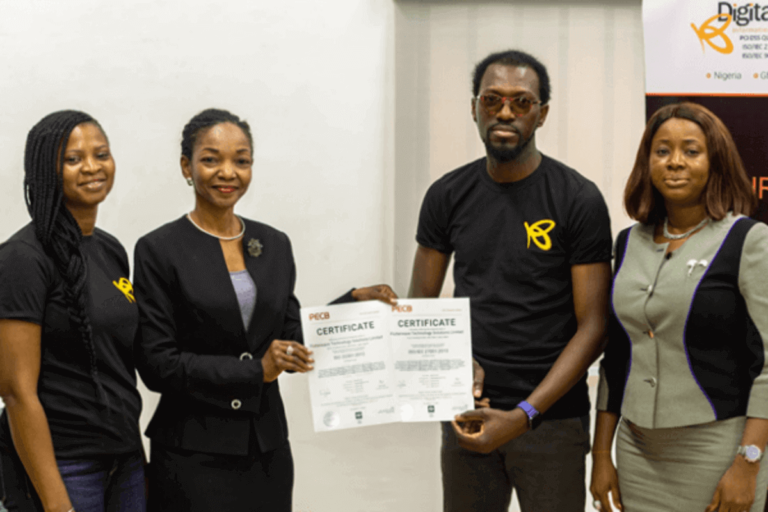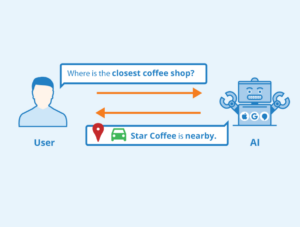The rise of African Unicorns: Interswitch, Jumia, Flutterwave & Fawry

Tech unicorns may be less rare than mythical unicorns, but they come with the promise of riches for the venture capitalist.
First coined in 2013, the term ‘unicorn’ refers to a privately held startup with a valuation of over $1 billion. There are hundreds of unicorns out there, but most are in the US, Europe, and Asia.
Africa has just four: Jumia, Interswitch, Fawry, and Flutterwave, which recently got a $170 million funding based on its $1 billion valuation.
This development seems to put Africa on the innovation map, as the continent’s brightest minds appear to be gaining the recognition and wealth they deserve.
But, is there something else we are missing? And do the continent’s inhabitants stand to gain or lose from this trend?
Let us take a closer look at the rise of African unicorns and what it means for the continent.
Africa’s First Unicorns
1. Interswitch
This company has grown to become the backbone of ATM withdrawals and transfers in Nigeria, by offering a network for banks to connect to other banks.
It currently has over 11,000 ATMs on this network and is additionally the #1 card issuer in the country, with the over 70% market share of its Verve card.
2. Jumia.
Africa’s #1 online retailer is headquartered in Berlin, Germany. Founded by two Frenchmen, Jumia has nearly become a household name in 14 countries, including Nigeria, Kenya, and Egypt.
The system is far from perfect, however, as it still has a long way to go with logistics, including the delivery costs to its customers. Jumia got listed on the New York Stock Exchange in April 2019. So, it is technically no more a unicorn.
3. Fawry
Founded by Ashraf Sabry, Fawry is Egypt’s leading payment processor, providing services from over 194,000 locations and channels.
4. Flutterwave
Africa’s fourth tech unicorn is headquartered in California, USA. It provides payment infrastructure for about 300,000 merchants across Africa. Flutterwave has over 300 employees and it is still a private company.
What all this means
The simple message is that Africa is a viable market with lots of growth potential. Though the overall company profits remain relatively less than what comparable operations in other continents achieve, growth, on the other hand, is guaranteed.
Then there is purchasing power parity. When you reconsider the $1 billion valuations of unicorns with the purchasing power parity of African economies, then they become super unicorns with relative western valuations of $10 to $50 billion.
The foreign funding for these unicorns also mean that African markets do not have the needed capital to fund them. Of course, there are venture capital firms around, but their pockets are either not deep enough or they have an aversion to tech.
Finally, most VC firms invest money with the hope of cashing out when the company goes public. So, foreign investments also mean that these firms are destined to list on stock exchanges abroad. As is the case already with Jumia’s NYSE IPO.
The sad reality
Africa’s sad reality comprises of many factors that work together to keep the continent perpetually behind its peers. There is high inflation, corruption, infrastructure deficit, and lots of lost opportunities because of these negative factors.
Although there is a good level of technological adoption on the continent, there is also a high aversion to technology as a profession. And this condition creates the need to import foreign technological products and services, further increasing Africa’s dependence, while weakening local industries.
This current dilemma does not result from a lack of talent or a workforce that can be trained to global standards. For example, over 50% of doctors trained in Nigeria are gainfully employed in western countries. And they are often among the best.
Andela, for instance, is an American company that trains top software engineers and then hires them out to corporations. This sounds great for the engineers, who earn better salaries. But the arrangement offers little value to Africa, as a community. It is like shipping off crude oil and then, importing refined petrol or diesel.
This is also exactly what a foreign IPO of Africa’s unicorns means for Africa. Local talent is sold to the west. And while Africans use the services created by these talents, the profits end up in foreign pockets.
But is there hope?
Google, Instagram, Facebook, Twitter, WhatsApp, YouTube, Gmail, and Quora. Do you know what they all have in common?
I will give you a clue:
Baidu, Weibo, WeChat, Youku, Zhihu, QQ. These are all replacements for foreign apps and software services that are banned in China.
The result? More prosperity for the People’s Republic.
Some say you can’t blame the Chinese. Africa could do better if governments played along. And it does not even have to include bans, because the mother continent is unique and so too, are its problems. So, good quality local technology will always beat what the multi-nationals are offering.
If you doubt that statement, then look no further than Africa’s tech unicorns. They thrive in markets where giants like Paypal, eBay, and the rest, have no clue. This shows you that there is always a local advantage.
Plus, there are few presidents like Rwanda’s Paul Kagame and Kenya’s Uhuru Kenyatta, who seem to be thinking in the right direction.
So, Yes! There is hope for African tech. We just need to do the job.
The issue of trust
Africans distrust their governments and they do so vehemently. But, from quenching protests with lethal force to switching off the internet on election day, and siphoning public funds to Swiss banks, the government officials willingly contribute to this distrust.
Their unpatriotic acts, in turn, help in creating self-sustaining vicious cycles. And these add to the continent’s woes, impeding technological and lifestyle development.
The result is endemic corruption, economic inefficiencies, mass emigrations, brain-drain, capital flight, loss of dignity, and abject poverty across the continent.
Rebuilding people’s trust in their government will reverse all of these societal ills. And luckily, there are a few tools we can employ here.
Tool 1: 80/20 Principle & efficiency modeling
Born to an exiled Italian family in 19th century France, Vilfredo Pareto discovered a simple but highly efficient natural law. This discovery has changed the fortunes of businesses, managers, and business consultants around the world, over the years.
The Pareto principle maintains that in every natural scenario, few inputs account for a majority of outputs. Or in the case of businesses, the majority of profits. This methodology is also called the 80/20 principle and helps in developing strategies to build on an organization’s strengths.
It is prudent, therefore, to properly analyze past data to discover what successful operations have in common. Then, you can model those few vital inputs in expanding your operations.
You can read more about this law of the vital few and trivial many in Robert Koch’s excellent book, the 80/20 Principle. We will just go straight to applying it here.
- All four African unicorns are computer-based and the average client uses a smartphone.
- All these platforms offer instant and transparent online services.
- Their client base is the #Endsars generation. A young tech-savvy demographic, which has employed the internet in remarkable ways to protest bad governance across Africa, highlighting the need for the governments to catch up digitally.
- They employ unique solutions that are modeled after Africa’s unique problems. That’s why they could beat multi-nationals who lacked local knowledge.
Putting these inputs together. You will find that African governments need to:
- Increase computer use, making more government services accessible from smartphones. Develop better official apps to boost security and efficiency.
- Increase transparency with open data and blockchains to boost trust in the economy.
- Invest in modern tech education to develop a competent digital workforce. And to boost citizen participation and collaboration with the government.
- The solution must be home-bred and not imported. As imported democracies and e-governments do not understand regional discrepancies and will most likely fail.
Tool 2: The Blockchain
Another tool is blockchain technology. Blockchain is a database or record-keeping method that makes it impossible to falsify records.
It is based on distributed ledgers, where interested parties keep separate records that are compared for hegemony before any modifications to the database.
These ledgers are made up of data blocks that include a timestamp and a digital cryptographic-signature called a hash. This makes its records immutable, creating thereby, the transparency and trust that Africa needs to propel forward.
Tool 3: E-governance & E-government
You should note that there is a slight difference between the two words: e-government and e-governance.
E-government is the process of digitizing government functions, such as name registrations, the voting process, announcements, and so on. In this vein, many governments across the world and Africa already deploy one form of e-government or the other.
E-governance, on the other hand, is a broader term that involves the use of ICT in developing a better government. This includes the detailed planning and execution of e-government initiatives and analysis of their effects on the population. Plus administrative modifications, procedures, and everything necessary for a successful implementation of e-government platforms.
In simple terms: e-government improves a government’s efficiency, while e-governance transforms it.
Modeling a successful African government from Unicorns
For Africa to achieve its full potential in our era, therefore, the adoption of e-governance becomes inevitable.
There are many e-governance proposals and initiatives out there. But to have the needed impact, a good system for Africa must include the following features:
- A centralized government network catering to all levels and regions from a single root domain.
- A standardized access system with intuitive web and smartphone apps.
- Blockchain-based databases for total transparency to completely annihilate corruption.
- Participating African Union countries, NGOs, watchdogs, and other interest groups can maintain select copies of the distributed ledgers for transparency.
- Every citizen must have an account in the system.
- Civil servants can have accounts with different access levels. With their relevant office information offered publicly and easily accessible by any citizen.
- Each government agency must have an official channel on the platform, where citizens can subscribe for authentic information.
- 100% online polling and voting capability.
- 100% blockchain-based and publicly accessible government-contract details.
Conclusion
Imported democracy has failed Africa. As it highlights local inefficiencies while portraying its origin countries as nearly perfect.
It is my argument that so long as this remains the status-quo, Africa’s brightest minds will continue to get shipped off like raw materials to the west. Only to have their outputs sold back to the continent at a premium.





